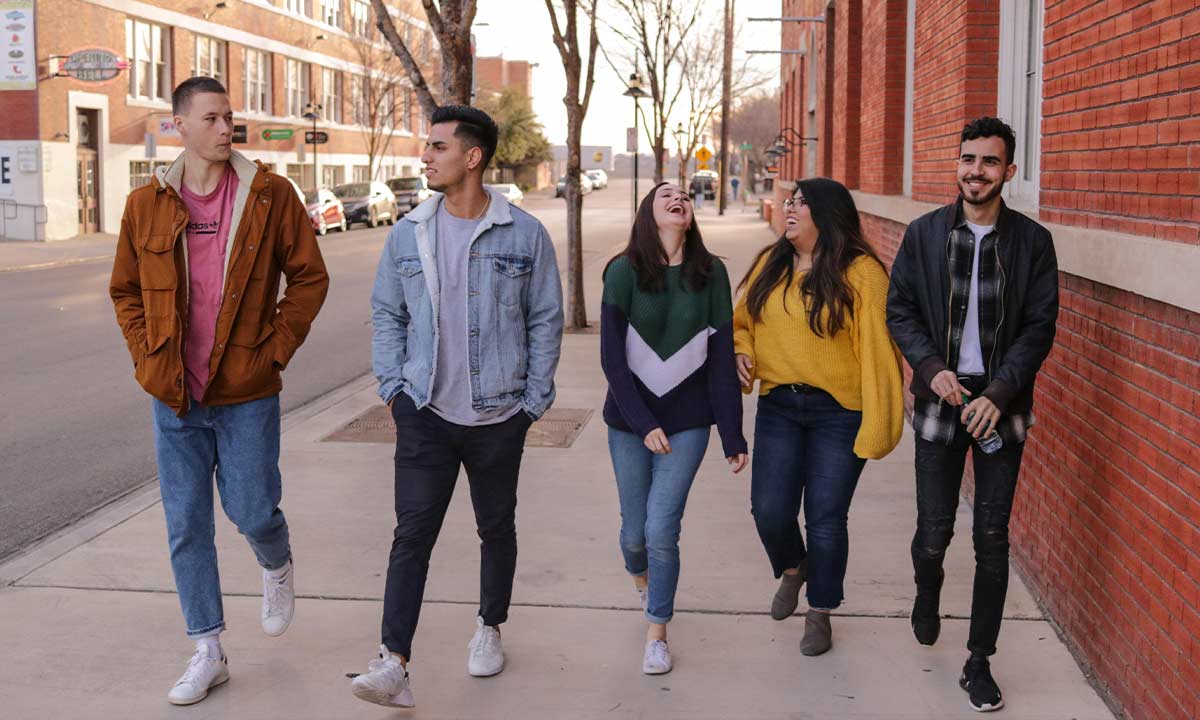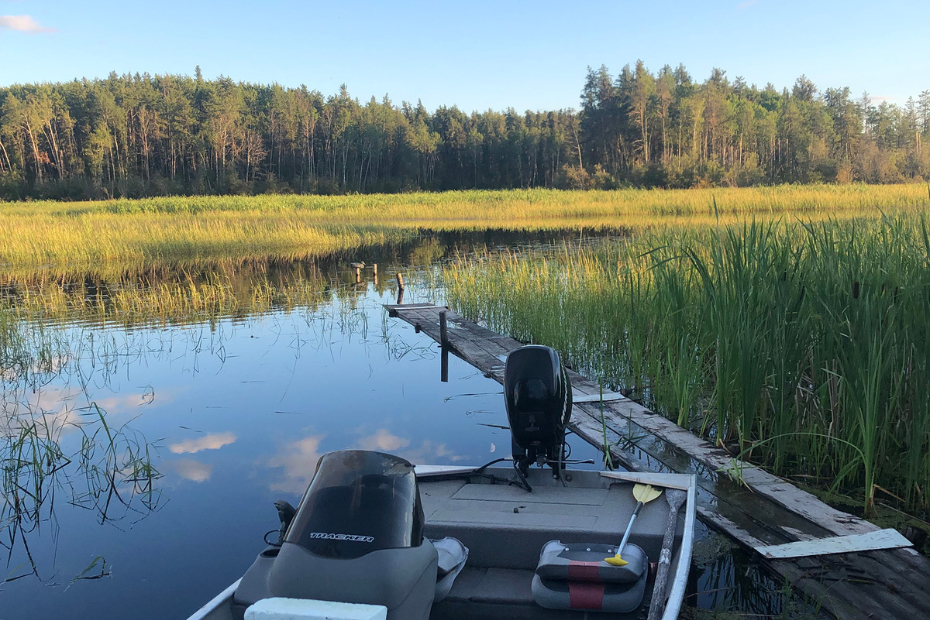Across the country, youth have been facing the persisting challenges of the pandemic — as well as the day-to-day trials of life as a young person. In a recent conversation, Dr. Steve Mathias, Executive Director at Foundry, explains that while some challenges have been amplified over the last two years, youth are experiencing the same struggles as they have for generations. What has changed — and what will continue to evolve — is the type, access and level of care available for young people in even the smallest communities of the country.
“As we continue to recover from the most extraordinary crisis of our generation, the need for young people to find access to mental health resources and services has never been more critical,” said Martin Thibodeau, Regional President for British Columbia. “RBC in BC is proud to help Foundry make a meaningful difference in the lives of Canadian youth by promoting confidence, resiliency and hope, and unite families and communities in the process.”
In a discussion between RBC and Dr. Mathias, the Foundry Executive Director shares his thoughts on the importance of working together to serve youth and what rural communities can teach the rest of the country about resilience and support.
Q: Can you describe the Foundry model?
Mathias: Foundry centres are collaborations between non-profit organizations, the ministry of children and family services as well as health authorities to provide most of the health and social services a young person would typically need between the ages of twelve and twenty-four. We try to bring all those services into one place and develop brand recognition in communities over time — so that when families are looking for support, they’re not hunting for solutions.
Communities are supported by the Foundry Central Office, which brings together all the stakeholders, engages young people and their families, designs and builds the centres and continues the work of integration once the centres are open.
The Foundry model is intended to be one where young people can walk through the door, have a conversation with someone and understand how they can get help.
Q: How is Foundry different than other youth services?
Mathias: The term ‘Foundry’ actually represents a term used to describe the partnerships that are created to deliver services. It represents a different way of working together, where the idea is to have shared leadership and collective impact within communities.
We are finding that as more and more youth become empowered to advocate for themselves, Foundry is growing as a movement — a movement of youth-friendly services that meet young people where they are.
Q: Do you feel youth from smaller communities face as many challenges as those in urban centres?
Mathias: Youth from urban and rural environments are more similar than they are different. The challenges young people are facing around identity, their future, education and employment are shared across the age span and across the province.
What we start to recognize is that access to services may be different in small communities, such as accessing a specialist, but there are also advantages specific to rural communities. For instance, there is a defined community and an expectation that the organizations working there are going to take care of their young people. When you move to a large urban centre such as Surrey or Vancouver, who’s taking care of you? Who is responsible for you? Who is your community? In many ways when it comes to our health delivery, we’ve moved away from acknowledging or identifying the community a young person is in.
Q: What are other challenges rural youth face in Canada?
Mathias: Beyond access to specialists, access to transportation can be an issue — we have seen that with First Nations youth living on the land. How do they get support? And in smaller communities, there is a scarcity of human resources — there may be a job opening but no one to fill it.
As well, there are some rural communities that don’t have the protective factors larger centres have — they may not have the recreational resources or critical mass required to run a summer sports league, for instance. One of the things we hear is, “there’s just nothing to do here for young people.” We need to figure out a way to support smaller communities.
Q: If small towns don’t have the people there to offer programming, what solutions are available?
Mathias: It’s not an easy problem to solve, but we need to think differently. Is there a way of breaking out of the ageism we see with sports leagues? Can we have inter-generational leagues or activities, instead of saying we need to stratify them into a 16- to 18-year-old age group? There is a lot of resilience in rural communities — it’s a very heterogeneous situation.
Q: You have robust virtual services. Can you describe your virtual offering?
Mathias: Our virtual care team is made up of clinicians and peer support workers that are located in all parts of the province. They provide virtual counselling, virtual peer support and primary care to young people across British Columbia. Even for those without a centre available to them, they can access virtual care 7 days a week delivered through an app portal.
I am very proud of not only our staff to hire up and develop this program out of nothing, but also the community organizations that were part of our network and that led the pivot when the pandemic struck.
Q: From your perspective, how has the Canadian mental health landscape for young people evolved since the start of the pandemic?
Mathias: Nothing and everything has changed. The need for increased access to services for young people was the impetus for getting Foundry off the ground in the first place in 2015. We proposed virtual care in 2015 — and again every year — and each time the government rejected us. It took a pandemic for the government to shift their thinking around this and see the benefit of what we were proposing.
As far as the mental health needs of young people go, not much has changed. There is still a significant number of young people who are struggling with day-to-day issues. It’s a part of life — young people struggle — and many times those struggles grow into something more, such as anxiety and depression.
The difference today compared to before is that more young people are feeling disconnected, or they’re struggling with the anxiety of an uncertain future. I also think some transitions are going to be harder now because young people may not have been in school full time and the stress of going back will be more intense.
But at the end of the day, it’s important for everyone to understand what we’re dealing with now is not that different from what we were dealing with before. The needs haven’t really changed in what young people are going through, although certainly they have been amplified in certain areas.
Q: Why does Foundry focus on ages 12 to 24 when it comes to supporting young people?
Mathias: The historic system of offering services and care to youth aged 18 and under is outdated and limits access to young people at times when support is needed most. We’ve been seeing an international shift in many of our partner countries, which is more in line with developmental needs. Young people often need support well into their twenties.
Our work is meant to significantly minimize the struggles that come with periods of transition, particularly around ages 17, 18 and 19. For these youth, school has been a part of their entire lives — and then suddenly they go into a very different setting, whether it’s post-secondary school or the workforce. It’s a lot to deal with when half of your waking hours have shifted — so maybe we shouldn’t be shifting the supports they’ve relied on as well? Let’s be there for young people as they go through that shift.
As part of RBC Future Launch, RBC is committed to enhancing youth mental well-being, offering access to a wide variety of digital resources that can help cope through challenges, build skills in resilience and even help other youth who may be struggling. Please take some time and explore the link above.
More from the Breakdown Down Barriers: Youth Mental Well Being in Canada:
This article is intended as general information only and is not to be relied upon as constituting legal, financial or other professional advice. A professional advisor should be consulted regarding your specific situation. Information presented is believed to be factual and up-to-date but we do not guarantee its accuracy and it should not be regarded as a complete analysis of the subjects discussed. All expressions of opinion reflect the judgment of the authors as of the date of publication and are subject to change. No endorsement of any third parties or their advice, opinions, information, products or services is expressly given or implied by Royal Bank of Canada or any of its affiliates.


































